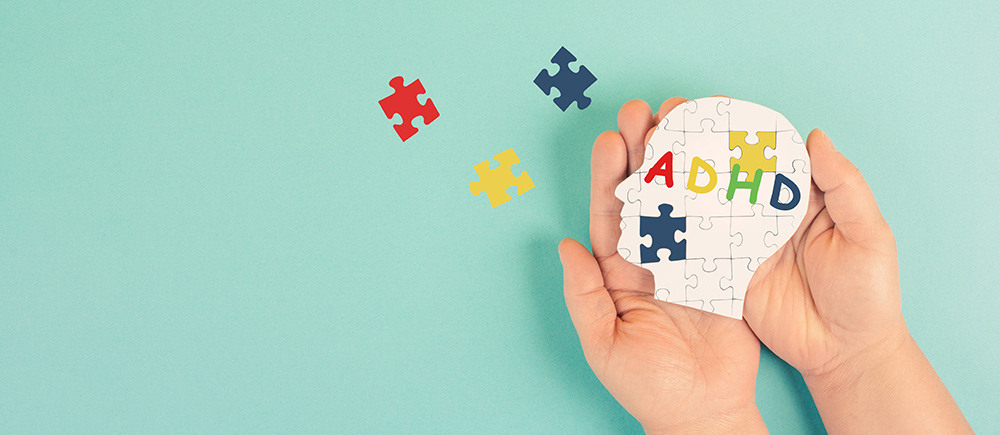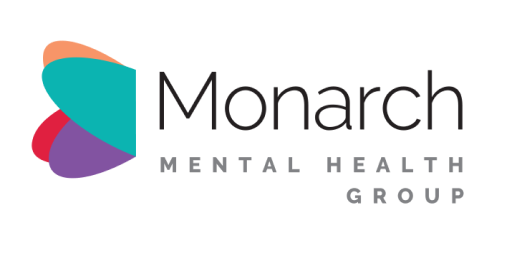Effective ADHD Treatment in Australia
Effective Strategies and Support for Managing ADHD
The Monarch Mental Health Group, through the Monarch Clinics and via telehealth, offers comprehensive assessment, diagnosis and treatment options for attention deficit hyperactivity disorder (ADHD) in adults.
Our ADHD assessment program utilises standardised psychometric tests and clinical interviews delivered by psychologists and provisionally registered psychologists to help your psychiatrist determine the best course of action for delivering their diagnosis and ADHD treatment recommendation.
What is ADHD?
Attention deficit hyperactivity disorder (commonly referred to as ADHD and sometimes as ADD in the past) is characterised by a difference in neurobiology evident in childhood and impacts executive function and self-regulation.
Executive function and self-regulation skills are the mental processes that enable us to plan, focus attention, remember instructions and juggle multiple tasks successfully. Approximately 1 in every 20 Australians has ADHD. More than 3 in 4 children diagnosed with ADHD will continue to experience symptoms as adults.
The 3 Types of ADHD
- Inattentive: A person is distractible, finds it hard to organise, finish tasks, pay attention to details and follow instructions or conversations.
- Hyperactive-Impulsive: A person is fidgety and restless. Someone who is impulsive may interrupt others, grab things from people, or speak at inappropriate times.
- Combined: A person has symptoms including hyperactivity, inattention and impulsivity.

What are ADHD Symptoms?
Inattentive Symptoms
- Not paying attention to details, or making careless mistakes in schoolwork
- Having difficulty remaining focused in class, conversations, or reading
- Avoiding tasks that take continuous mental effort (e.g., homework)
- Not following through on instructions; starting but not finishing tasks
- Having difficulty organising tasks, activities, belongings, or time
- Being easily distracted or daydreaming Losing things Not seeming to listen when spoken to
- Being forgetful with everyday tasks, such as chores and appointments
Hyperactive-Impulsive Symptoms
- Fidgeting and squirming
- Running or climbing in situations where it is inappropriate (leaving their seat in class)
- Talking non-stop
- Interrupting conversations, games, or activities
- Using people’s things without permission
- Blurting out an answer before a question has been finished
- Having difficulty playing quietly
- Having difficulty waiting their turn
- Leaving the seat in class or in other situations where sitting is expected Being constantly in motion, as if 'driven by a motor' Struggling to play or do tasks quietly

ADHD Treatment with MMHG
There is increasing evidence of the use of TMS (Transcranial Magnetic Stimulation) in treating ADHD. TMS can improve aspects of cognition in adults with ADHD and is a treatment pathway MMHG offers. MMHG is a leader in delivering TMS treatment for a range of mental health issues, including ADHD.
Alternatively, the Monarch Mental Health Group collaborates with a range of psychiatrists to whom we can refer patients for private practice consultations.
Assessment and Diagnosis
An adult assessment service encompassing psychological testing designed to understand your symptoms to assist the psychiatrist in their diagnosis. Assessment takes 1 to 4 weeks and is followed by a psychiatric diagnostic session. This process helps to diagnose ADHD accurately and identify any coexisting mental disorders.
Psychological Intervention
MMHG’s ten-week adult ADHD psychological intervention program is designed to provide you with skills to manage your ADHD symptoms. You will be matched with a clinician who has expertise in working with ADHD.
This program will give you an understanding of the neurobiological processes of the ADHD mind and ways to begin to use this knowledge to your advantage. Your clinician will work alongside you to develop your own tools and strategies to manage ADHD effectively. By doing this, you will create better habits and improve executive functioning, overall enhancing your performance and life satisfaction.
ADHD TMS Treatment
TMS has a treatment protocol designed to treat aspects of ADHD in adults. The Monarch Mental Health Group delivers TMS treatment for a range of mental health conditions. TMS is a non-invasive, medication-free pathway that may be used as part of treatment for ADHD.
ADHD Medications
Some stimulant medications have been found to be effective for managing ADHD. Following an assessment with a Monarch psychiatrist, the appropriateness of medication for your particular situation will be explored. ADHD medication for adults shows the most effect when used in conjunction with psychological support.
Consulting Suites
The Monarch Mental Health Group works with several psychiatrists who also run their own private practices. If you have been diagnosed with ADHD and are looking to explore your treatment options, setting up an appointment with one of our psychiatrists via our consulting suites may be a suitable option.
Our Difference
Psychiatrist-led mental health service
Fast access to all services
Evidence-based, individualized treatment programs
Comprehensive process reports sent to the treating team
Initial consultation* with a psychiatrist bulk billed.
Medicare rebates available on all treatment programs
*Please note - only Monarch Group initial assessments are bulk billed. Accessing clinicians through our consulting suites will incur out-of-pocket costs.
Frequently Asked Questions
The best way to treat ADHD typically involves a combination of medication, psychological intervention and lifestyle changes. This comprehensive approach can help manage symptoms effectively and improve overall functioning.
ADHD is associated with imbalances in brain chemicals called neurotransmitters, which play a crucial role in regulating attention and behaviour. Treatments often aim to correct these imbalances.
Diagnosing ADHD involves a comprehensive assessment, including a clinical interview, psychometric tests and evaluation of symptoms against DSM criteria.
Yes, poor quality sleep can make the symptoms worse. Lack of sleep can exacerbate inattention, impulsivity and hyperactivity, making it more difficult to manage ADHD symptoms effectively. Ensuring good sleep hygiene and addressing sleep difficulties is an important part of managing ADHD.
The core symptoms of ADHD include inattention, hyperactivity and impulsive behaviour. These symptoms can vary in severity and impact different aspects of daily life, making it important to identify and manage them effectively.
Individuals with ADHD may be at higher risk for drug abuse, particularly if their symptoms are not adequately managed. Effective treatment and support can mitigate this risk.
ADHD coaching involves working with a trained coach to develop skills and strategies to manage ADHD symptoms, improve executive function and enhance everyday life.
A physical exam can help rule out other conditions that may mimic ADHD symptoms, ensuring an accurate diagnosis and appropriate treatment plan.
Mindfulness meditation training can improve focus, reduce impulsivity and enhance emotional regulation, making it a beneficial practice for managing ADHD symptoms.
ADHD and OCD can co-occur, complicating diagnosis and treatment. It's essential to address both conditions to improve overall mental health and functioning.
Behaviour therapy can help individuals with ADHD develop coping strategies, improve organisational skills and manage symptoms effectively, leading to better outcomes in everyday life.
Family therapy can improve communication, provide support and help family members develop strategies to assist their loved one in managing ADHD symptoms.
Conduct disorders involve behavioural issues such as aggression and rule-breaking. They can co-occur with ADHD, making comprehensive treatment essential for addressing both conditions.
ADHD drugs can have several potential side effects, including insomnia, loss of appetite, increased heart rate, anxiety, irritability, headaches and stomachaches. Non-stimulant medications may cause drowsiness, fatigue, dizziness and nausea. It's important to discuss any side effects with your doctor to manage them effectively and adjust your treatment plan if necessary.

